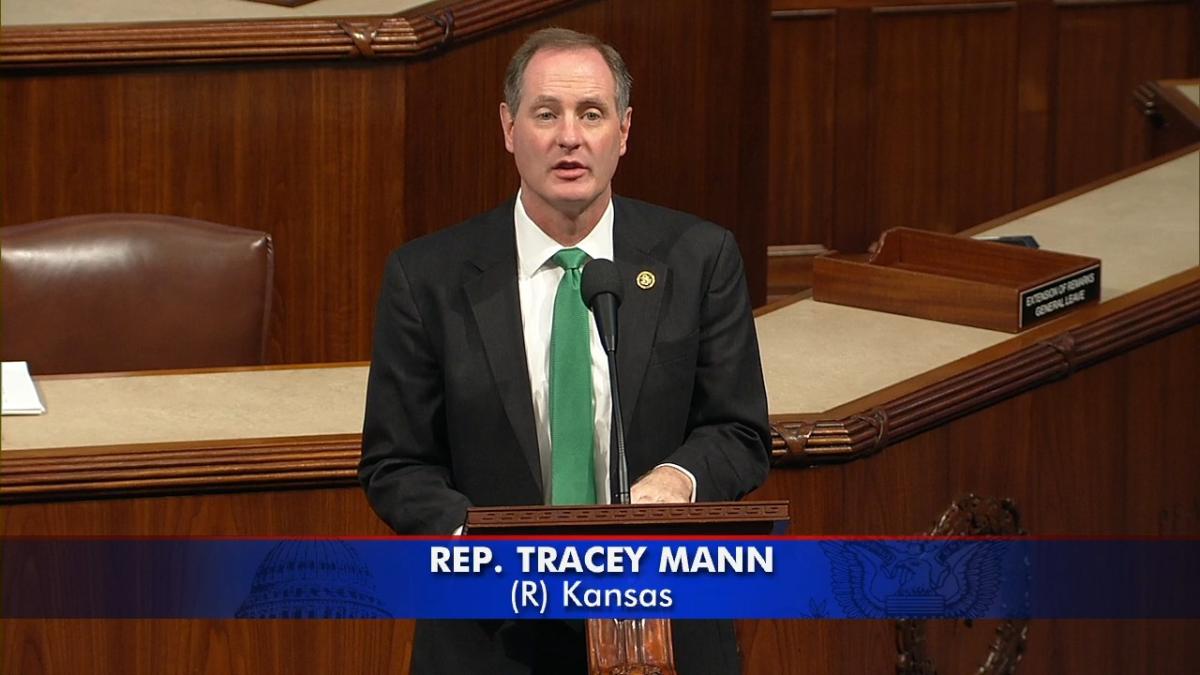Rep. Tracey Mann introduces three bills to reform and support rural health care

U.S. Congressman Tracey Mann, R-Kansas, introduced three bills reforming Rural Health Clinics, a type of primary care facility that many communities in Kansas rely on.
Mann is leading a bipartisan group asking for the change with Rep. Jill Tokuda, D-Hawaii, on all three bills, and so far, 13 other lawmakers on both sides of the aisle have signed on as co-sponsors.
"You ask yourself what we would have in common, very different districts, very different parts of the country, but the answer to that is the importance of our Rural Health Clinics," Mann said in an interview with The Capital-Journal.
All three bills cut red tape in health care policy governing Rural Health Clinics or expand definitions to allow more communities to set up clinics. There were 188 certified Rural Health Clinics in Kansas as of 2023, according to the Centers for Medicare and Medicaid Services.
In Hawaii, with its smaller geographic footprint, there were 13.
“Rural Health Clinics play a vital role in delivering care to rural and underserved communities,” Tokuda said in a press release. “By modernizing old rules and empowering our health care workforce, we’re giving Rural Health Clinics the tools they need to deliver faster, better care to patients from Puna to Hanalei in Hawaii and throughout rural America.”
Location, location, location
The Rural Health Clinic Services Act established the clinic's designation in 1977, and created a different reimbursement mechanism where they're paid on a per-visit basis rather than for services. It aimed to bring primary health care to populations that lack access to health care.
What has qualified as rural has changed over the years, and at its lowest was limited to communities with populations under 5,000, or be defined as an area that is medically underserved. One of Mann's bills, the Rural Health Clinic Location Modernization Act, would change it to become just based on population, and would cap it to communities with 50,000 or fewer people.
"If you're in a community with less than 50,000 people you should be able to go to a Rural Health Clinic," Mann said. "That will be really big for Kansas and so many of our communities."
The expanded definition would make most of Kansas outside of Wichita, Lawrence, Topeka, Manhattan and Kansas City eligible for the clinics.
Cutting red tape
Two of the bills would cut red tape of clinics and allow them to expand what care they provide, and who provides it.
The Rural Behavioral Health Improvement Act does away with provisions that restrict clinics from offering behavioral health services. Currently, Rural Health Clinics can only offer 49% of their services for behavioral health.
"We've really seen an increase in this all over our state, all over the country frankly, but that covers mental health, substance abuse," Mann said.
Clinics also must abide by more stringent laws on who can practice than many states. Seven states have extended full practice authority, where non-doctors can evaluate patients, diagnose, order and interpret diagnostic tests, to physician's assistants and 27 states have given that authority to nurse practitioners.
The Modernizing Rural Physician Assistant and Nurse Practitioner Utilization Act would align scope of practice rules to the states they're in. Kansas is one of the 27 states that have expended scopes of practice to nurse practitioners, but hasn't expanded for physician assistants.
Congressman and health care organizations lend support
The three bills each have a handful of bipartisan lawmakers that have signed on in support. Health care organizations that focus on rural medicine are also supportive of the legislation.
"The 5,700+ Rural Health Clinics across the country applaud the leadership of Rep. Mann and Rep. Tokuda on these important regulatory reduction bills," said Sarah Hohman, Director of Government Affairs for the National Association of Rural Health Clinics, said in a press release. "Modernizing these aspects of the RHC statute from their 1977 origin reflects a commitment to the future of outpatient health care access in rural America."
Three bills were introduced on Sept. 8
All three bills were introduced on Sept. 8, but still have a way to go if they're to become law. All three bills are short, and achieve their goals by tweaking definitions in existing laws.
The bills have been referred to the House Committee on Energy and Commerce, Ways and Means. Speaker of the House Mike Johnson, R-Louisiana, could subsequently determine that a different committee has jurisdiction over the bills.